Smart home tech has already changed the way we live, but what’s coming next will make today’s innovations look basic. In the next decade, everything from your front door to your fridge will be more intuitive, more connected, and more capable of anticipating your needs before you even speak. We’re talking about homes that adjust themselves automatically, learn your habits, and even help reduce your carbon footprint—without you lifting a finger. Here are 13 surprising ways homes will be smarter in the years ahead.
1. Voice-Activated Everything

Voice-activated systems will dominate homes of the future, enabling seamless control of lighting, appliances, security, and more. From cooking instructions delivered through smart speakers to setting the perfect ambiance with a simple command, these systems will become more intuitive and personalized. Advanced AI will enable devices to recognize individual family members’ voices, tailoring responses and actions to their preferences.
According to The Verge, the next decade will see voice assistants move beyond basic tasks into proactive home management. They’ll monitor energy usage, suggest cost-saving adjustments, and even anticipate needs based on daily routines. Voice-activated systems will redefine convenience, making homes more responsive and personalized than ever.
2. Hyper-Connected Kitchens
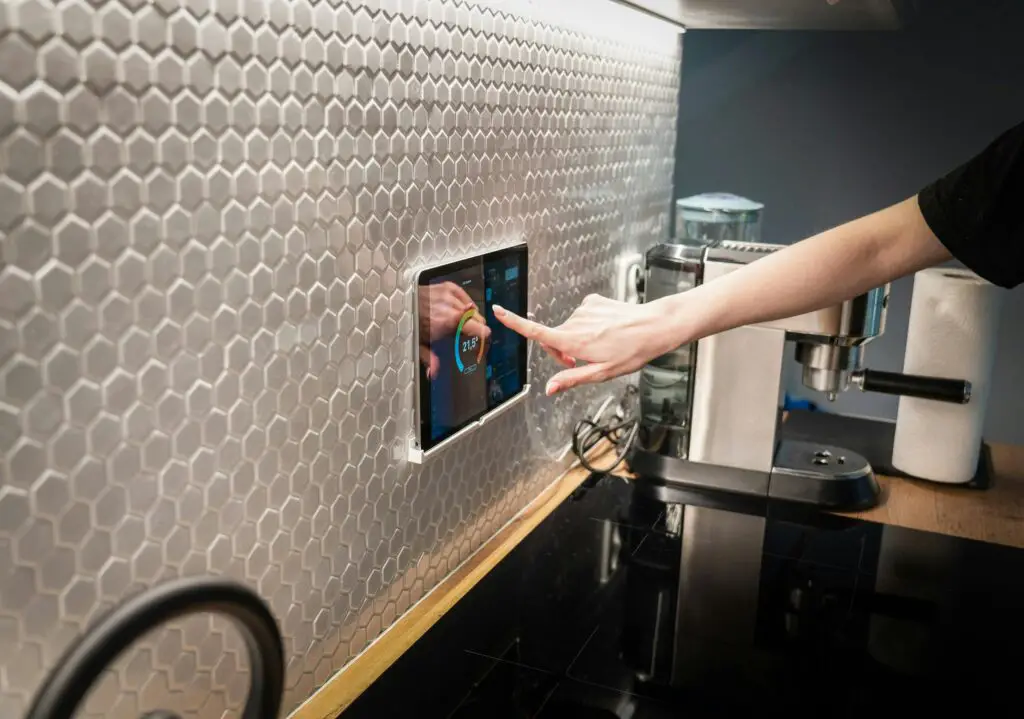
Kitchens will become the brain centers of smarter homes, equipped with interconnected appliances that communicate seamlessly. Smart refrigerators will track inventory, suggest recipes based on what’s available, and automatically order groceries when supplies run low. Ovens, dishwashers, and coffee makers will sync to your schedule, ensuring everything runs on time and with minimal effort.
Good Housekeeping reports that hyper-connected kitchens will focus on sustainability, helping families reduce food waste and energy consumption. As appliances grow smarter, they’ll also integrate health monitoring features, offering personalized dietary advice and tracking nutritional goals. These innovations will transform kitchens into hubs of efficiency and wellness.
3. Health-Monitoring Smart Beds

Future smart beds will do much more than track sleep patterns—they’ll monitor heart rates, breathing, and even stress levels to provide comprehensive health insights. Integrated sensors will adjust mattress firmness and temperature in real-time to ensure optimal rest. Some models may even sync with home climate systems to create the perfect sleeping environment.
According to Sleep Foundation, these advanced beds could alert users to potential health issues, acting as an early warning system for conditions like sleep apnea or irregular heart rhythms. By combining comfort with health-focused technology, smart beds will redefine what it means to wake up feeling truly refreshed.
4. Self-Cleaning Bathrooms
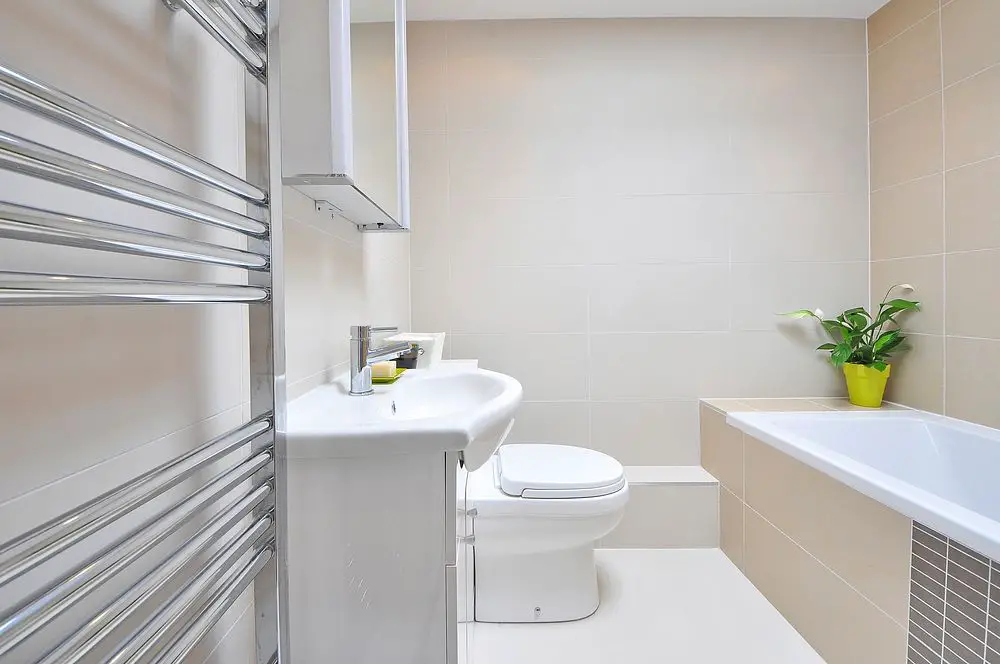
Bathrooms of the future will feature self-cleaning surfaces and fixtures, leveraging antimicrobial materials and automated cleaning cycles. Smart toilets will sanitize themselves after each use, while showers and sinks will prevent mold and soap scum buildup through advanced coating technologies.
As noted by Architectural Digest, these innovations are designed for both hygiene and sustainability. Self-cleaning systems will reduce water usage and the need for harsh cleaning chemicals, creating more eco-friendly households. By minimizing maintenance, they’ll also free up time for homeowners to focus on other priorities.
5. Dynamic Climate Control
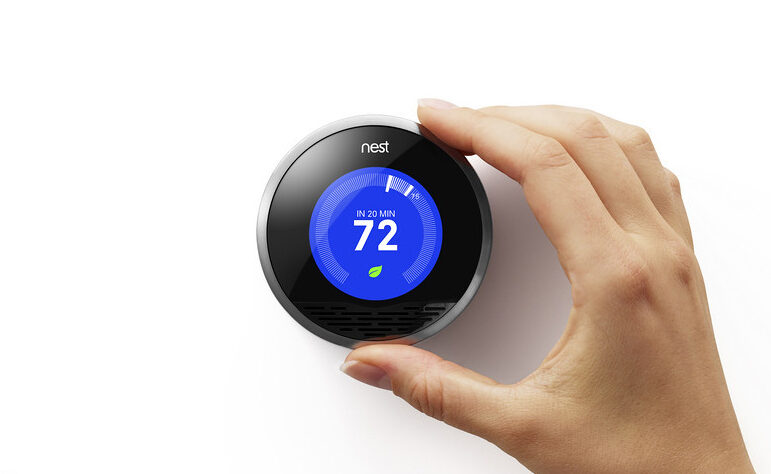
Dynamic climate control systems will use AI to monitor weather, occupancy, and personal preferences, creating tailored microclimates in each room. These systems will adjust heating, cooling, and humidity levels in real-time, maximizing comfort while minimizing energy usage.
Energy.gov highlights that these systems will integrate with renewable energy sources like solar panels, optimizing power usage throughout the day. Advanced sensors will ensure that no energy is wasted on unoccupied rooms, making homes both smarter and more eco-conscious. Dynamic climate control will set a new standard for comfort and efficiency.
6. Personalized Smart Lighting
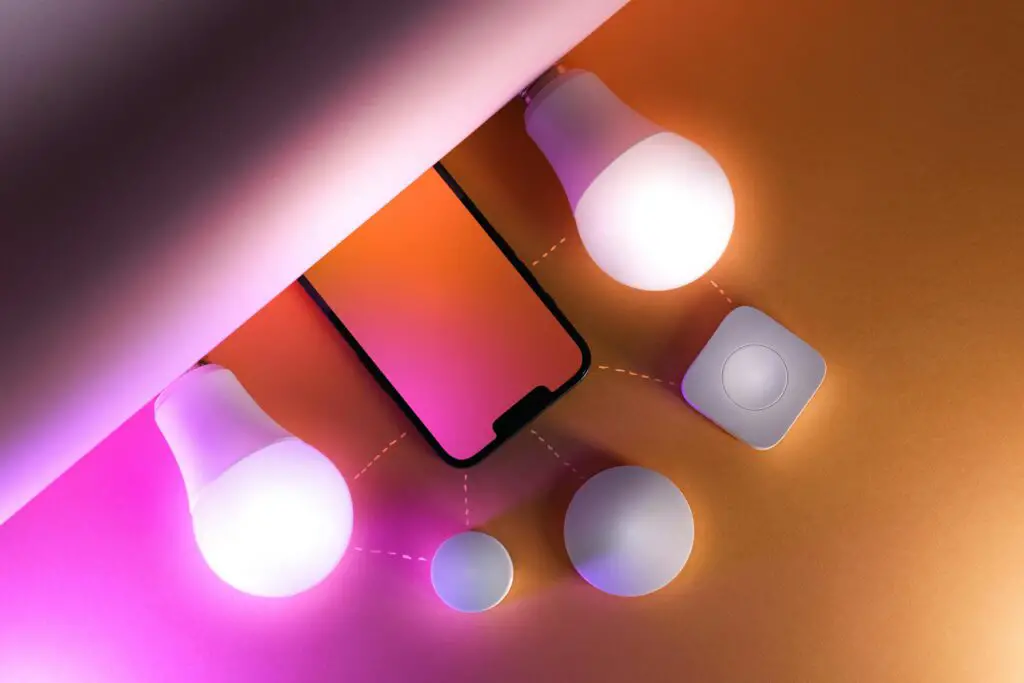
Smart lighting systems will evolve to adapt to moods, activities, and time of day, offering personalized illumination throughout the home. Using circadian rhythm technology, lights will simulate natural sunlight during the day and shift to calming tones in the evening to promote better sleep.
Future lighting systems will also enhance security by mimicking occupancy when homeowners are away. Integration with voice commands and AI will make customization effortless, allowing homeowners to create the perfect atmosphere with minimal input. Smart lighting will transform homes into spaces that are both functional and emotionally uplifting.
7. AI-Powered Home Maintenance
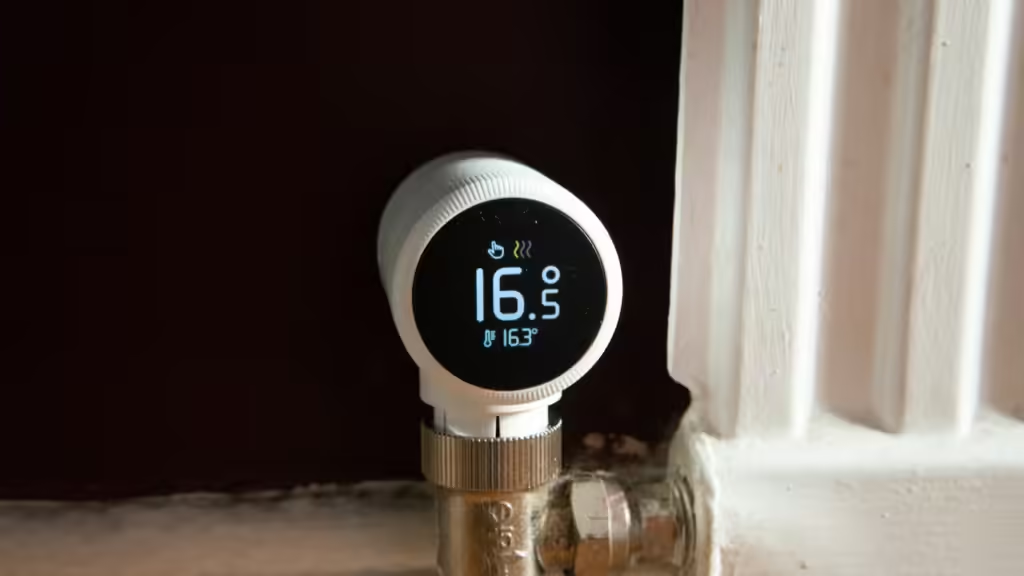
AI-powered home maintenance systems will proactively identify and address issues before they escalate. From detecting leaks to predicting appliance failures, these systems will ensure homes remain in top condition with minimal homeowner intervention.
AI will revolutionize the concept of preventative maintenance. Smart systems will provide detailed reports, suggest repairs, and even schedule service appointments automatically. This level of automation will save time, reduce costs, and extend the lifespan of household systems and appliances.
8. Holographic Entertainment Systems

Holographic entertainment systems will redefine how families enjoy media, offering immersive experiences that bring movies, games, and virtual meetings to life. These systems will project lifelike 3D images into living spaces, creating a cinematic experience at home.
Holographic technology will extend beyond entertainment, becoming a tool for education, remote work, and even fitness. Imagine attending a virtual yoga class where the instructor appears in your living room, or hosting lifelike family reunions with loved ones far away. Holographic systems will make the digital world feel closer than ever.
9. Smart Walls with Built-In Displays
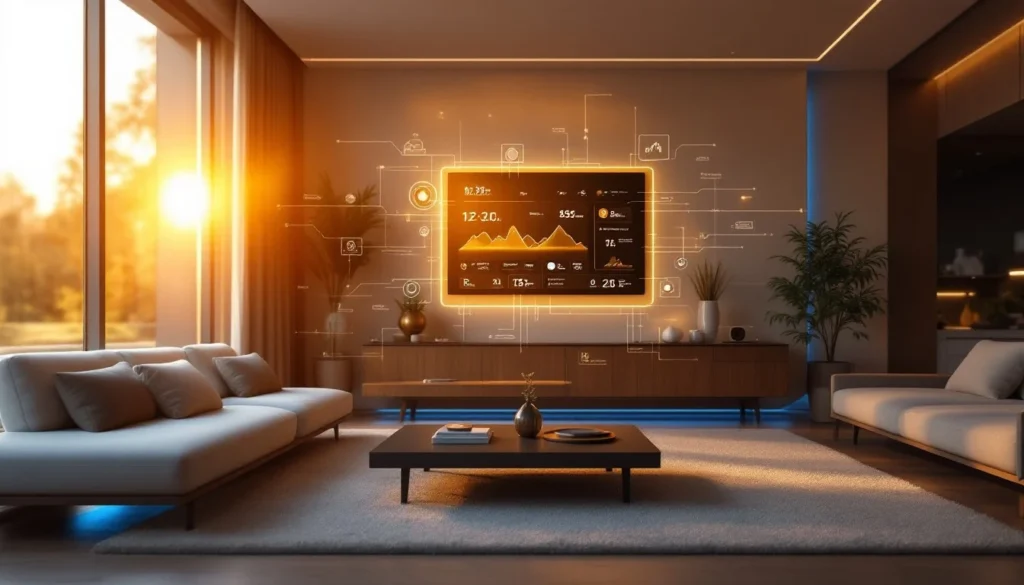
Smart walls equipped with customizable displays will transform living spaces into interactive environments. These walls can double as giant screens for entertainment, interactive whiteboards for work, or digital art galleries that change with your mood.
Smart walls will integrate seamlessly with other home systems, offering control panels for lighting, security, and climate at your fingertips. Their versatility will make them a focal point of home design, blending technology with aesthetics in exciting new ways. These walls will elevate the functionality of every room.
10. Robotic Home Assistants
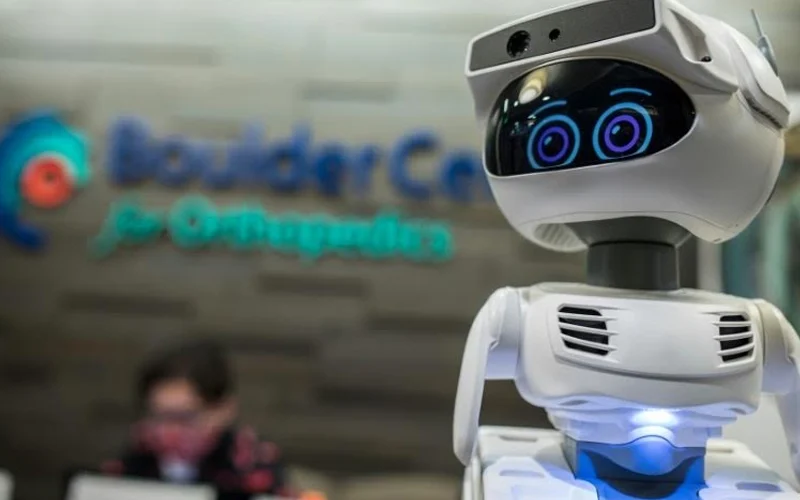
Robotic assistants will become indispensable members of the household, performing tasks like cleaning, cooking, and even pet care. Equipped with advanced AI and mobility, these robots will adapt to their environments and learn routines over time, offering truly personalized assistance.
Future home robots will go beyond vacuuming to include more complex tasks, such as tidying up toys or preparing meals. They’ll also serve as companions, engaging in conversation and providing emotional support. These innovations will redefine what it means to have a helping hand at home.
11. Home Energy Storage Solutions
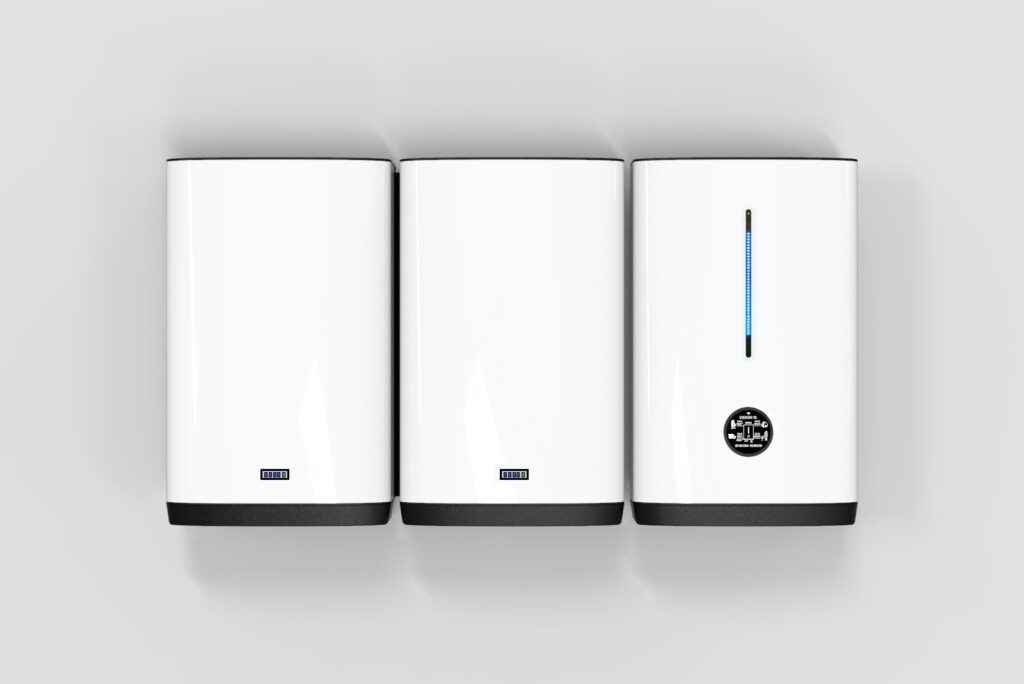
Home energy storage systems will evolve to store excess power from renewable sources like solar panels. These systems will ensure uninterrupted energy supply, even during outages, while reducing reliance on the grid.
Future systems will integrate with AI to optimize energy usage, storing power during low-demand periods and releasing it when needed. This will not only lower electricity bills but also contribute to a more sustainable future. Energy storage will be a cornerstone of smarter, self-sufficient homes.
12. Wearable Home Controls

Wearable devices will give homeowners unprecedented control over their living spaces, allowing them to adjust settings, monitor security, and receive alerts directly from their smartwatches or other wearables. These devices will enable seamless interaction with home systems from anywhere.
Wearables will make home management more intuitive, providing instant access to critical information. Whether locking doors, dimming lights, or checking energy usage, these devices will empower homeowners to stay connected to their smart homes at all times. The integration of wearables will elevate convenience to new heights.
13. Integrated Water Management Systems
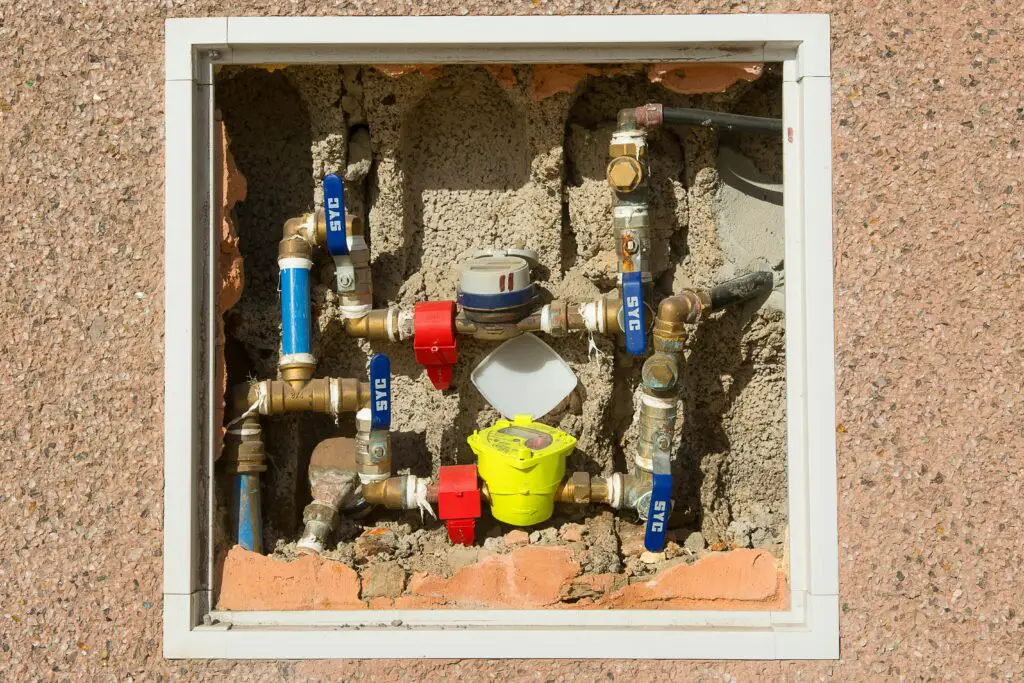
Smart water management systems will monitor usage, detect leaks, and optimize water distribution within homes. These systems will ensure that resources are used efficiently, contributing to lower utility bills and sustainable living.
Future systems will also offer features like greywater recycling and real-time water quality monitoring. This technology will help homeowners reduce their environmental footprint while ensuring access to clean, safe water. Integrated water management will become a vital component of next-generation homes.
